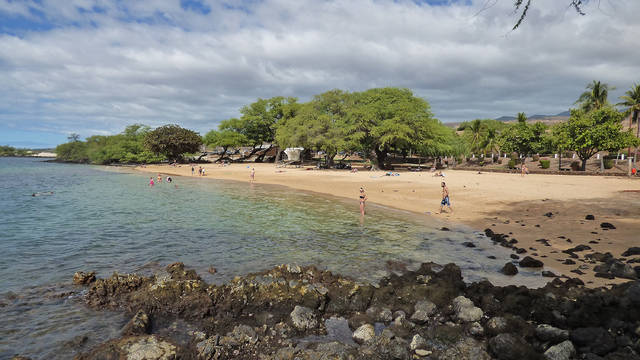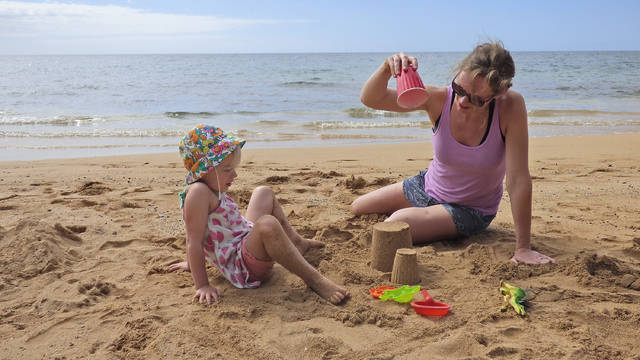KAILUA-KONA — Hawaii Island is known for several black sand beaches, but Spencer Beach Park isn’t one of them.
But it was there a handful of black splotches caught the attention of beachgoers last week and sparked a state Department of Health investigation. On Thursday, Hawaii County filed a complaint with DOH about a potential oil spill affecting Spencer Beach Park in South Kohala after the presence of tar was identified amid its sands.
DOH’s Evaluation and Emergency Response team as well as its Clean Water Branch joined Hawaii County Parks and Recreation employees along with lifeguards to survey the beach last Friday.
“A CWB investigator was able to find one tarball the size of a dime and later found two smaller pieces stuck on their shoes after walking on the north side of the beach,” Anna Koethe, DOH public health information coordinator, wrote in an email to West Hawaii Today.
The investigation was then placed back under the purview of Parks and Recreation, which Koethe said returned to the beach over the weekend “with a focus” on the section where tarballs were identified.
County officials within the department did not return multiple requests for comment on the status of the investigation as of press time Tuesday.
DOH said the tarballs likely originated as part of an oil spill that washed up on the beach or were produced from natural seeps in the earth’s crust releasing oil into the ocean in small amounts. Slicks form in either case and are then “weathered” by the elements, changing their appearance.
Oil patches torn from the slicks are often reduced to tarballs, which can be as large as a pancake but are more commonly the size of coins, Koethe explained.
“Tarballs are very persistent in the marine environment and can travel hundreds of miles,” she said. “Considering this, it can be very difficult to pinpoint an exact source of the spill or contamination resulting in the tarballs found at Spencer Beach absent an actual observation of a spill from a passing vessel.”
Owners of oil tankers or any other vessels found to be responsible for an oil spill may incur monetary fines levied by the state. However, as the DOH investigation did not determine the source of the tarballs at the park or render any witnesses to the spill, punitive action is unlikely.
Minimal human contact with oil doesn’t typically result in any physical harm, Koethe said, but some may experience allergic reactions after direct oil-to-skin contact.
“In general, it is recommended that contact with oil be avoided,” Koethe continued. “If contact occurs, wash the area with soap and water, baby oil, or a widely used, safe cleaning compound such as the cleaning paste sold at auto parts stores.”







The US military gives us tar balls and we should be thankful after all they do such a good job in squandering the US tax payers money.